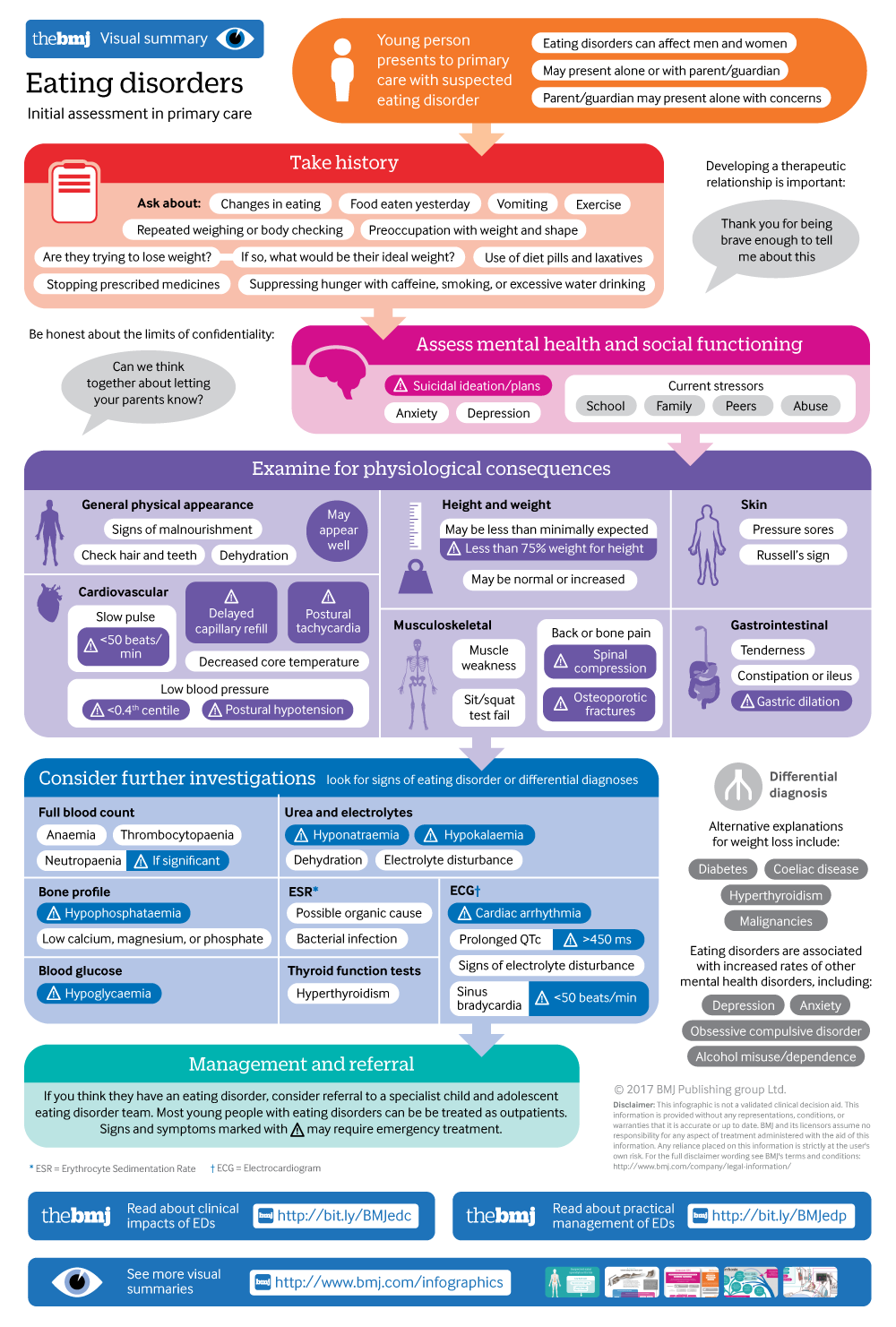Intended for healthcare professionals
Rapid response to:
Practice
Clinical Updates

Eating disorders in children and young people
BMJ 2017; 359 doi: https://doi.org/10.1136/bmj.j5245 (Published 07 December 2017) Cite this as: BMJ 2017;359:j5245
Infographic available
Click here for a visual overview of initial assessment of eating disorders in primary care.
Rapid Response:
Re: Eating disorders in children and young people
Screening questionnaires and brief interventions may be useful adjuncts to clinical diagnosis and initial management in primary care but were not mentioned in either of the excellent Clinical Update or Practice Pointer articles concerning Eating Disorders. Shortened versions lend themselves particularly to primary care e.g. CAGE. Primary care engagement with adolescents is challenging in itself. Engagement with young possibly eating disordered individuals comes with the additional layers of secrecy and untrustworthiness where eating behaviour is concerned. Primary care physicians acknowledge their uncertainties concerning the best method of enquiry when confronted with such individuals.
The best known shortened screening questionnaire for use by primary care physicians concerning Eating Disorders is SCOFF which is quoted as having almost 100% sensitivity and >87.5% specificity. This sounds impressive until you realise that the initial validation arose from data obtained from responses from the following 2 sets of subjects -
Individuals who had a known diagnosis of Eating Disorder for several years - this group had no reason to conceal their diagnosis and presumably less reason to misinform concerning their eating habits, etc
Individuals who were known not to have a diagnosis of Eating Disorder - this group would truthfully provide answers that confirmed this.
SCOFF validation was not tested against a group of eating disordered individuals as yet undiagnosed who might be predicted to misinform concerning the SCOFF questionnaire in order to conceal their condition and avoid intervention.
Therefore, the sensitivity of SCOFF is flawed, and there is even greater need for a more reliable shortened screening questionnaire for primary care physicians so that eating disordered individuals can achieve earlier recognition and the better outcomes that are associated with earlier effective intervention.
Competing interests: No competing interests